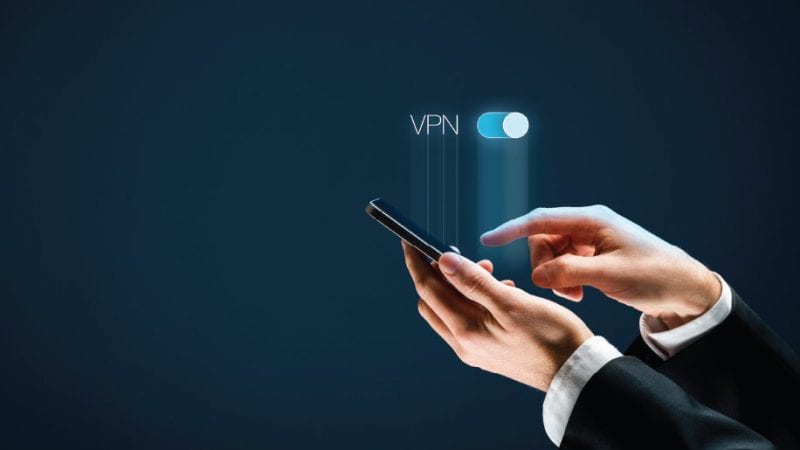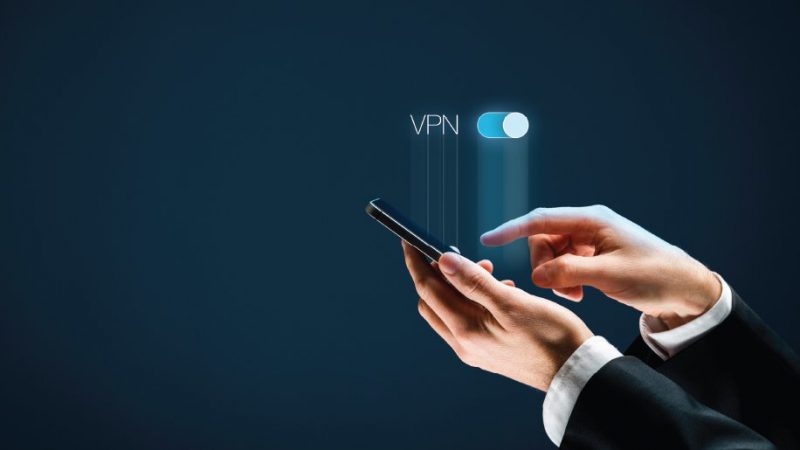Slipping Under The Net
December 31, 2018

You’ve probably heard the abbreviation VPN, and you may know that it stands for virtual private network. If you know more, perhaps you are aware of its reputation for enabling illegal downloads or other dodgy stuff. Although this reputation is well-earned, VPNs can also be used for legitimate purposes, such as making sure blockchain transactions are about as private as they can be. The deep web – those sites not found via standard search engines – can also be accessed more securely using a VPN.
So what, exactly, is a VPN? At its simplest, a VPN is a series of computers networked together across the Internet. It creates a virtual tunnel between your computer and a server operated by the VPN company. This tunnel is encrypted so external Internet traffic can’t see your data.
When your computer is connected to the VPN, your IP address (the network address for a computer on that network at that moment) is masked by the IP address of the VPN server, so your identity is hidden, too.
Secure Connection
Most of the time, we don’t think about any of this and just connect to a hotel or coffee shop’s Wifi network. In the majority of situations that’s fine, but it’s hard to know who might be watching the traffic on a network. In extreme cases, it’s possible that a nefarious party could have set up a network in order to steal personal data. This could be passwords, credit card details or even just the e-mail you’re sending to change your return flight. While a reputable hotel may be trustworthy, using an Internet café is less certain.
Once a VPN is in place, however, neither those operating the network nor those trying to hack into it are able to intercept your data. So, that soppy message to your significant other remains as private as you’d like it to be. The same is true for the business-critical information you’re sending through the ether.
Access All Areas
Additionally, in countries where certain websites are blocked, using a VPN means access to them is possible. In a country such as China, where it’s hard to get on Facebook or even Google, a VPN provides a way around this.
A VPN disguises where you are in the world, so if you are trying to access data only available to US residents, then an American VPN gives the impression you’re there and not in Tottenham or Timbuktu. This could be for something as simple as accessing the dollar prices on products in an online store instead of being repeatedly redirected to the European or UK sites.
On the other hand, it might be that you want to watch Netflix, iPlayer or Sky Sports overseas – even work trips need to have downtime. Streaming services such as Netflix try → to prevent users watching UK content overseas due to varying rights issues between countries. However, some VPNs allow you to slip under the net. If you do want to use one, an online search for “VPNs that work with [insert name of site]” will offer up a few options. Be aware that you may be breaking the rights agreements if you decide to do this.
In countries such as China, Egypt and Turkey, which have less liberal attitudes, the government may ban some VPNs without warning. Earlier this year, Apple ejected several VPNs from the App Store because the Chinese government ruled them illegal, not surprisingly as they’re a way of leapfrogging the Great Firewall of China. ExpressVPN, however, is apparently ignored by Chinese authorities because its more expensive pricing and lack of Chinese-language support mean that Chinese customers don’t use it.
One rule of thumb is to download VPN apps and software before you travel to countries that have strict rules. In such countries, you may also find that hotels aimed at foreign tourists have fewer restrictions on which sites you can visit, though don’t imagine that means your traffic is not being monitored.
Choosing a VPN
VPN connections tend to be slower than standard connections, not least because data is encrypted and routed through multiple servers. Generally speaking, the more servers the VPN offers, the better chance you have of finding one near you, which helps speed-wise. It’s hard to predict speeds because that depends entirely on your line, but a good VPN shouldn’t slow it too much.
Speaking of which, should you be paying a price at all or are free VPNs good enough? This is a matter of debate. VPNs are not cheap to run, so the organizations need to pay for them somehow. This can be through ads, which may not be the experience you’re looking for, or even by selling data to third parties, which rather defeats the point.
There are also paid-for VPN companies, which have a free tier, say 500MB a month. You’d be surprised how quickly this data is used up and then you’ll be invited to pay for an upgraded service.
A VPN isn’t perfect: if all you are trying to do is catch the latest Netflix program or NFL game, it may be rather more hassle than it’s worth. However, the value it offers in terms of privacy of data and identity means, at the least, it’s worth considering.
Four of the best
ExpressVPN
ExpressVPN stands out because of strong server speeds and great versatility; that is, it functions on lots of devices. It has over 2,000 servers in 94 countries. It works (currently) with Netflix and iPlayer, though not in every country, and is compatible with PC, Mac, Android, iPhone and BlackBerry. There’s no free trial, but a 30-day money-back guarantee applies. It’s $12.95 per month or $8.32 a month if you commit for a year. expressvpn.com
Tunnel Bear
The cutely designed Tunnel Bear is simple to use and if you’re a low-data user, the free plan may suit, though you’ll hit the free ceiling quickly if you’re streaming video. Speeds are not noticeably slower than non-VPN traffic. It has been blocked by iPlayer but works, sometimes, with Netflix and is compatible with numerous devices. It offers 500MB a month free; unlimited data, $9.99 a month or $59.99 for a year. tunnelbear.com
NordVPN
This is a very well-regarded VPN service with wide device compatibility, strong reliability and fast speeds. It currently works with Netflix and iPlayer. Pluses include easy set-up with advanced settings if you want them. It costs $11.95 a month, which drops as low as $2.99 a month if you commit for three years. nordvpn.com
Invincibull
Invincibull is one of the newer services. It’s easy to use and has no limit on how many devices you can connect to at a time: handy if you have a phone, tablet and computer when you’re traveling. It offers 1GB a month free; unlimited data is $7.99 a month or $4.99 a month if you commit for a year. invincibull.io




